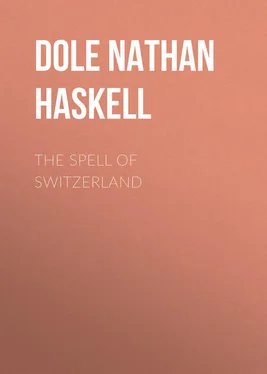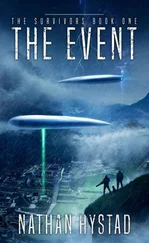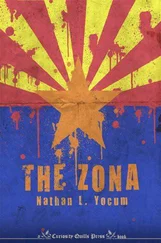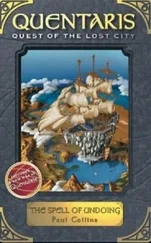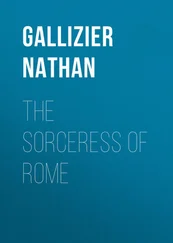Nathan Dole - The Spell of Switzerland
Здесь есть возможность читать онлайн «Nathan Dole - The Spell of Switzerland» — ознакомительный отрывок электронной книги совершенно бесплатно, а после прочтения отрывка купить полную версию. В некоторых случаях можно слушать аудио, скачать через торрент в формате fb2 и присутствует краткое содержание. Жанр: foreign_antique, foreign_prose, на английском языке. Описание произведения, (предисловие) а так же отзывы посетителей доступны на портале библиотеки ЛибКат.
- Название:The Spell of Switzerland
- Автор:
- Жанр:
- Год:неизвестен
- ISBN:нет данных
- Рейтинг книги:5 / 5. Голосов: 1
-
Избранное:Добавить в избранное
- Отзывы:
-
Ваша оценка:
- 100
- 1
- 2
- 3
- 4
- 5
The Spell of Switzerland: краткое содержание, описание и аннотация
Предлагаем к чтению аннотацию, описание, краткое содержание или предисловие (зависит от того, что написал сам автор книги «The Spell of Switzerland»). Если вы не нашли необходимую информацию о книге — напишите в комментариях, мы постараемся отыскать её.
The Spell of Switzerland — читать онлайн ознакомительный отрывок
Ниже представлен текст книги, разбитый по страницам. Система сохранения места последней прочитанной страницы, позволяет с удобством читать онлайн бесплатно книгу «The Spell of Switzerland», без необходимости каждый раз заново искать на чём Вы остановились. Поставьте закладку, и сможете в любой момент перейти на страницу, на которой закончили чтение.
Интервал:
Закладка:
Talking about these early days, we had reached the Palais Rumine, that monument of Russian generosity – a new building – one might call it almost a parvenu building – compared with the old Gothic cathedral, only a few steps farther on.
In a way, however, the cathedral is even later than the palace, because its restoration, in accordance with plans designed by the famous French architect, Viollet-le-Duc, was not completed until 1906, two years after the other building was dedicated to its present uses. The palace, which was built from the fifteen hundred thousand francs left by Gavriil Riumin (to spell the name in the Russian way), contains the various offices of the University, as well as picture galleries and museums.
“So this is the famous University of Lausanne,” I exclaimed, as we entered the learned portal.
“It has been a University for only about a quarter of a century,” remarked Will. “Gibbon and others wanted the Academy raised to a University more than a hundred years ago; but there seemed to be some prejudice against it. Its various schools were added at intervals. There has been a Special Industrial School ‘of Public Works and Constructions’ for about sixty years. In 1873 a school of pharmacy was started, and in 1888, when the Academy became a full-fledged University, it established a medical school. Theology still stands first; then come the schools of letters, of law, of science, of pedagogy, and of chemistry. Instruction is given in design, fencing, riding and gymnastics, and the University grants three degrees, the baccalaureate, the licentiate and the doctorate. It has an excellent library.”
“My errand will take me only a moment,” he added. “It is too fine a day to waste indoors; we shall have plenty of times when the atmosphere is not so clear, for the museums and the cathedral. I propose we stretch our legs by walking up to the Signal. Are you fit for such a climb?”
“What do you take me for?” I asked, with a fine show of indignation. “It is only about four hundred feet above where we are now.”
I had not studied the guide-book for nothing.
There may be a great exhilaration and excitement and delight in climbing to the top of lofty mountains, but, when one has achieved the summit, even if the view be not cut off by clouds, the distances are so enormous that for poor mortal eyes the result is most unsatisfactory. Huddled together, peak with peak, an indistinguishable mass, lie other mountains and ranges of mountains, with bottomless valleys; the effect is as unsatisfactory as the air is rare. One can see nothing clearly; one is out of one’s element, so to speak; one can hardly breathe.
But from a height of a thousand feet, or so, one gets a comprehensive view of the world; one can distinguish the habitations of men; their farms and fields are marked off with fences; the rivers and brooks are not voiceless. It is a satisfying experience. Such is the impression that I got from the top of the Signal. The city is fascinating, seen from above. There is the great bulk of the cathedral with its massive tower and the tall slender spire; the red roofs of innumerable houses; chimneys of factories in the lower town; then the exquisite lake; and, beyond it, the singularly silent and solemn masses of Les Diablerets, Le Grand Muveran and the jagged teeth of the Savoy Mountains, biting into the sky. They are so high that they shut off the grand bulk of Mont Blanc. It was certainly most thoughtful of my Lord Rhône to pause in the great valley and make a sky-blue lake for the delectation of mortals! Like swans with raised wings are the sail-boats. How far the wake made by that excursion steamboat extends across the placid water; it is curved like a scimetar of damascened steel!
“What a host of hotels!” I exclaimed. “I wonder how many foreigners are staying at Lausanne.”
“There must be five or six thousand regular residents from other parts of the world, besides the multitude of transients; Lausanne is a convenient stopping-place for several routes, to say nothing of the Simplon Tunnel line to Italy. There are probably fourteen hundred students at the University, and half of that number are Germans, Russians and Poles. The German Minister of Public Instruction permits students of the Empire to spend the first three semesters at certain of the Swiss universities. But a suspicion arose in some Vaterland circles that these young men were being corrupted by Russian radicalism and Vaudois democracy – undermining their monarchical principles. There was also some jealousy, especially in the Law School. Herr Kuhlenbeck and Herr Vleuten were the so-called treaty professors, and the fees were not equally distributed. The Rundschau charged that young men learned socialism.
“It has always seemed to me an excellent notion to exchange students, just as we are beginning to exchange professors. It might serve to undermine narrow, sectional patriotism, but it would teach a broader, world patriotism.”
The view back of Lausanne also claimed my attention.
“These heights of Jorat,” said Will, “are rather interesting geologically. It seems to be a sort of subsidiary wave, filling the space between the Jura and the Alps; but it has an individuality of its own. It was always covered with great sombre forests which gave it a melancholy aspect. The basis of the soil is sandstone, covered with pudding-stone. The ridge is all cut up with deep valleys. I have heard it said that the inhabitants had quite distinguishing characteristics and I don’t know why the people who live on some particular soil should not develop in their own way, just as the trees and plants and even the animals do. The stature diminishes as men inhabit higher and higher altitudes. The Swiss of the plains are generally rather heavy and slow, serious and solid. In the same way the people who live along the Jorat ought to be self-contained, close-mouthed, rather sad in temperament, perhaps uncertain in their movements, like the brook, the Nozon, which can’t quite make up its mind whether to flow to the Mediterranean by way of the Rhône or to the German Ocean by way of the Rhine.”
“It used to be a pretty important region, I should judge,” said I, “from all I have read of Swiss history. One flood of invasion after another dashed up against its walls and poured through its valleys.”
“It was, indeed. Some day I will show you the old tower which was called the Eye of Helvetia because it looked down and guarded the chief routes south and north, which crossed at its feet. It can be seen on a clear day from the top of Mont Pélerin. Then there is the tower of Gourze, where Queen Berthe took refuge when the Huns came sweeping over this land. Lausanne itself, as it is now, is a proof of the old invasions; it used to stand on the very shores of the lake, but, when the Allemanni came, the inhabitants took refuge in the heights.”
“I think this is a charming view, but, do you know, to me its greatest charm is in the signs of a flourishing population. See the church spires picturesquely rising above clumps of trees, and, here and there, the tiled roofs of some old château – of course I do not know them from one another, but I know the names of several – Moléson, Corcelles, Ropraz, Ussières, Chatélard, Hermenches.”
Several of these my nephew and I afterwards visited. I recall with delight our trip to the Château de Ropraz, where once lived the wonderfully gifted Renée de Marsens. It now belongs to the family of Desmeules. Near it, on a hill, lies the little village, the church of which was reconstructed in 1761, though its interior still preserves its venerable, archaic appearance. A grille surmounted by the Clavel arms separates the nave from the choir. There are tombs with Latin inscriptions, and on the walls are escutcheons painted with the arms of the old seigneurs. They still show the benches reserved for the masters of the château, flanked by two chairs with copper plates signifying that they are the “Place du Commandant” and the “Place du Chef de la Justice.” Seats were provided for visiting strangers and also for the domestics of the château. On the front of the pulpit is a panneau of carved wood bearing the words Soli Deo Gloria .
Читать дальшеИнтервал:
Закладка:
Похожие книги на «The Spell of Switzerland»
Представляем Вашему вниманию похожие книги на «The Spell of Switzerland» списком для выбора. Мы отобрали схожую по названию и смыслу литературу в надежде предоставить читателям больше вариантов отыскать новые, интересные, ещё непрочитанные произведения.
Обсуждение, отзывы о книге «The Spell of Switzerland» и просто собственные мнения читателей. Оставьте ваши комментарии, напишите, что Вы думаете о произведении, его смысле или главных героях. Укажите что конкретно понравилось, а что нет, и почему Вы так считаете.
